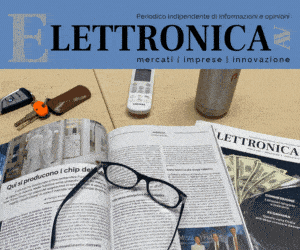Internet of Things solutions are playing an increasingly important role in industrial automation and control applications. This is confirmed by a survey conducted by Farnell, between September and December 2020, on a pool of more than 2,000 participants, including engineers and buyers of components for IoT solutions, in 60 countries in Europe, North America and APAC. The survey reveals that industrial automation and control is one of the top three segments affected by IoT applications (home automation and artificial intelligence are the other two) and that 48% of participants cited production improvements and productivity as their top motivations for designing within IoT connectivity. Apparently, environmental sensors are the most popular within IoT devices, used to measure temperature, humidity, pressure, gases and more. The survey also found that a large number of respondents use SBCs at the heart of their IoT projects (48%). Cliff Ortmeyer, Global Head of Technical Marketing at Farnell, comments: "Industrial automation and the continued implementation of Industry 4.0 will create an IoT market with broader and faster growth at least in the medium term".
Conrad's point of view
Another distributor's point of view is also interesting: Conrad. Speaking is Filippo Mattioli, Marketing Manager of Conrad Italy: "Topics such as AI and IIOT are constantly expanding the possibilities of automation and offering a multitude of solutions. In this sense, the Italian market is now mature. Staying up to date with the latest market and technology innovations from leading suppliers is therefore increasingly strategic. At Conrad, you can find all the products you need under one roof, thus optimising the flow of research and procurement of the right material: PLCs and accessories, industrial sensors, motors and drives, pneumatic products, power supplies, control cabinets and housings, industrial relays and controls, switches and signal lamps, cables and wires, connectors, industrial PCs, industrial Ethernet solutions, etc. As part of our industrial automation offering, we pay particular attention to the areas of maintenance and repair, digitisation of control cabinets and field and process technologies, but we are also able to cover customer-specific automation solutions in the field of special machine building.
A Molex investigation
On the machinery and control systems segment we have data collected by Molex with a survey commissioned from Dimensional Research. The survey, which polled 216 professionals in R&D, design, manufacturing, strategy, innovation, and supply chain management in the robotics, machinery, and control systems industries, revealed a general appreciation of the benefits of applying smart manufacturing and Industrial Internet of Things technologies. Those who invest in these areas claim to get better products (69% of respondents), reduced overall production costs (58%), increased revenues (53%) and reduced time-to-market (35%). Beware, however: it is true that integrated machines, remote access to production lines and connectivity are increasingly appreciated, but for a wide-ranging implementation of intelligent technologies we still need to overcome some cultural and technological obstacles. Among the former, as indicated by the interviewees, are the lack of support for change from corporate leadership, the difficulty in finding staff with data analysis skills, organisational structures that limit information sharing, still scarce funding and a general lack of adequate technological skills. Secondly, there are barriers caused by separate IT and OT network infrastructures, restrictive communication protocols, limited remote access, misaligned cloud infrastructure and data solutions, and inadequate security resources. John Newkirk, vice president and general manager, Industrial Solutions, at Molex, says, "Traditional manufacturing systems do not offer the flexibility, connectivity and distributed intelligence needed to effectively address market demands and rapidly changing consumer expectations." That's why Molex is committed to "fueling the development of open, modular solutions that significantly improve efficiency while reducing complexity, cost and time to market," such as the recently introduced Flexible Automation Modules (FAM), which extend the US-based manufacturer's Industrial Automation Solutions (IAS4.0). FAMs offer customisable connectivity, distributed control and Industrial Internet of Things (IIoT) apps to speed up the development of flexible, modular and connected manufacturing machinery.
With solutions of this kind, critical production data can be collected, shared and fed into analytics and artificial intelligence (AI) systems, and one of the peculiarities of Industry 4.0 is realised: the reduction of dependence on hardware systems and the possibility for manufacturers to reconfigure a production line and use it to produce different, customised products. Think, for example, of the automotive sector and what it means to be able to produce different vehicle models on the same production line, automating the replacement of functions and trim levels, increasing the resilience of the supply chain and the variation in availability of components and materials.



















